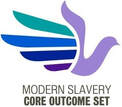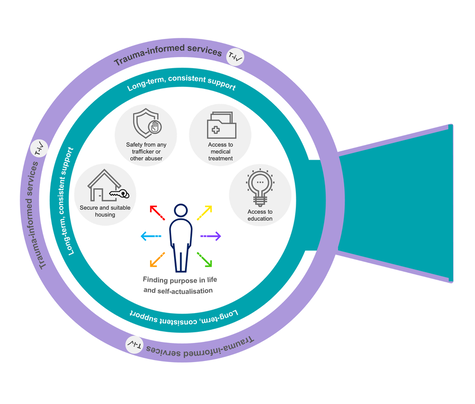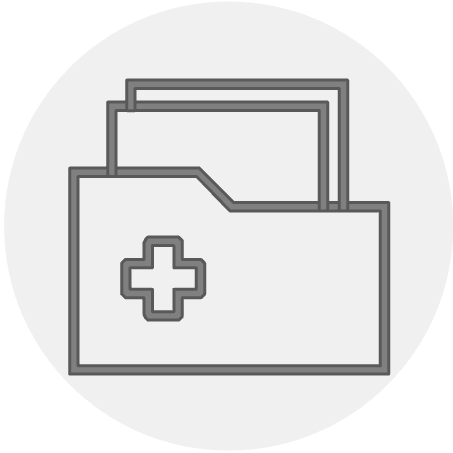AIMS
There is always a risk of retraumatisation and distress when conducting research with survivors of human trafficking and modern slavery. It is, therefore, incumbent on researchers to explore all other ways of answering the questions they have, before primary research is conducted.
METHODS
We used pre-existing interview transcripts from adult survivors of modern slavery from Wright et al. (2020) to extract outcomes. Wright et al. conducted in-depth semi-structured interviews with 36 survivors from across the UK asking about 'mental health recovery and what this means to individuals'. We reviewed transcripts from these interviews, extracting any outcomes discussed by interviewees. We copied these into an Excel data extraction form with a pre-existing three-level taxonomy (on the levels of outcome area, domains, and indicators) based on the literature reviews.
RESULTS
Analysis of the pre-existing survivor interviews produced 584 unique outcomes, at an average of 16 outcomes per interview. Outcomes comprised a broad range of domains including: ‘advocacy’, ‘agency’, ‘deprivation’, ‘education’, ‘family’, ‘housing’, ‘socialising’, ‘status’, and ‘wellbeing’. Unsurprisingly, given the mental health context of the interviews, 144 of the outcomes came under the ‘wellbeing’ domain. These outcomes included, ‘positivity’, ‘control’, ‘acceptance’, ‘self-esteem’, ‘self- awareness’, ‘hope and fear’, ‘focus’, and ‘independence’. There were also 48 more medicalised outcomes in the ‘mental health’ domain, including ‘hospitalisation’, ‘triggering events’, ‘paranoia’, ‘anxiety’, ‘suicidal thoughts’, ‘depression’ and ‘panic attacks’.
Outcomes from the interviews were striking in that they centred on the basic elements of feeling human. The domain categories ‘feeling normal’ and ‘being able to function and participate in everyday society’ were prominent. There were 122 outcomes in these areas encompassing: ‘dignity’, ‘feeling human’, ‘belonging’, ‘feeling heard’, ‘being able to sleep’, ‘being able to drive’, ‘being able to use public transport’, ‘being social’, ‘healthy relationships’ and ‘going out to eat’. Finally, issues around immigration status emerged as a result of secondary analysis. This domain produced 31 outcomes relating to certainty, safety, recognition, stability and being able to forget the past.
Outcomes from the interviews were striking in that they centred on the basic elements of feeling human. The domain categories ‘feeling normal’ and ‘being able to function and participate in everyday society’ were prominent. There were 122 outcomes in these areas encompassing: ‘dignity’, ‘feeling human’, ‘belonging’, ‘feeling heard’, ‘being able to sleep’, ‘being able to drive’, ‘being able to use public transport’, ‘being social’, ‘healthy relationships’ and ‘going out to eat’. Finally, issues around immigration status emerged as a result of secondary analysis. This domain produced 31 outcomes relating to certainty, safety, recognition, stability and being able to forget the past.
MSCOS Discussion Forums
|
PARTNERS
|
FUNDER
|















